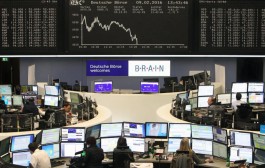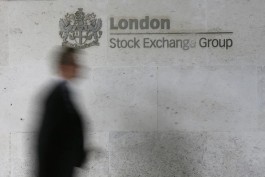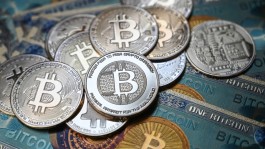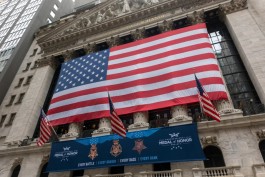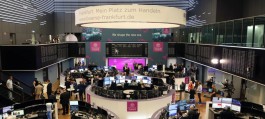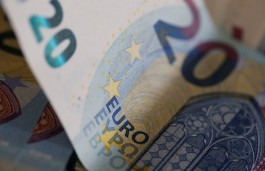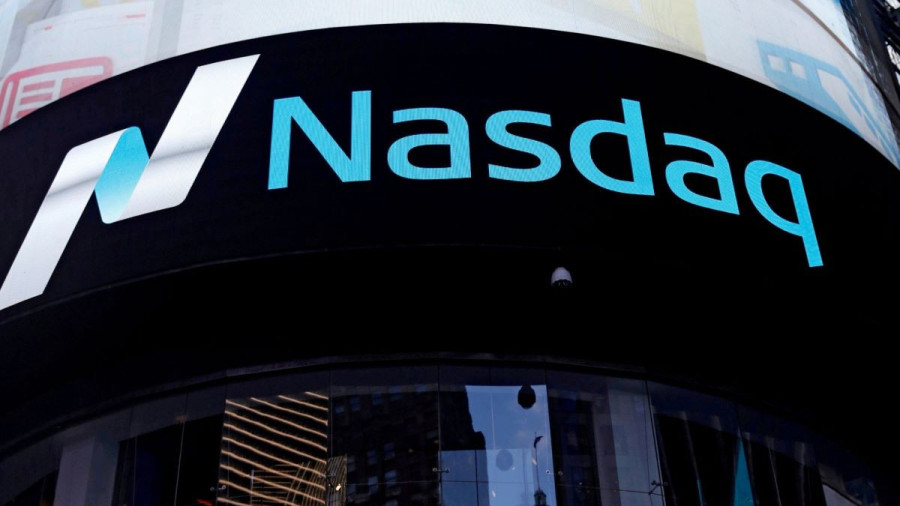The rise of the tech giant stocks helped the US stock market rebound, outweighing concerns about rising Treasury yields just a few days before Federal Reserve Chairman Jerome Powell spoke.
The S&P 500 halted a 4-day decline, while the Nasdaq 100 rose nearly 1.5%, with Tesla stock rising by the most since March.
Nvidia shares, which contributed to igniting the wave of mania with artificial intelligence that drove the rise of stocks this year, jumped by more than 8%. The chip maker will report results on Wednesday, with revenue expected to rise 65 percent compared to the same period last year, according to data compiled by Bloomberg.
Edward Moya, senior market analyst at OANDA, said: This week is great for technology stocks. There is a state of optimism that (Nvidia) will achieve good results. Will (Nvidia) profits return to revive transactions related to artificial intelligence and provide a much-needed moment of rest for technology stocks? .
In the closing hours of the trading session, SoftBank Group's Arm semiconductor unit filed for what is set to be the largest initial public offering in the United States this year. Shares of Zoom Video Communications rose based on optimistic expectations. Charles Schwab's company plans to save at least $500 million annually in employee wages, professional services and real estate costs, in the brokerage firm's latest move to respond to investor pressure.
bond selling wave
Bonds resumed the selling wave due to signs of a strong economy that supported bets on continuing to raise interest rates. The yield on 10-year Treasury Inflation-Protected Notes rose by more than 2% for the first time since 2009. Not long after that, the yield on 10-year Treasury Inflation-Protected Notes reached a level last seen in late 2007.
Rising real yields in and of themselves do not mean that the trajectory of equity movement is necessarily bad, according to Bespoke Investment Group. Since 1997 average stock futures returns when real returns hit a 52-week high have been modestly worse than all periods, analysts at the group write. In addition, new highs in real returns broadly tend to lead to stronger growth in Earnings per share.
Bespoke analysts point out that this is consistent with the view that higher real returns represent a stronger economy, albeit with some negative implications for the valuation of asset prices.
Powell will speak on Friday at the Economic Policy Symposium in Jackson Hole, after officials last month raised interest rates to a range of 5.25% to 5.5%, the highest level in 22 years. The Fed's meeting minutes showed that policymakers still see significant risks that inflation may remain higher than they expect, which could keep interest rates high.
Economic strength and interest rates
“Investors will sift through every sentence Jerome Powell says at the Jackson Hole conference this week for clues about the Fed’s action,” said Chris Larkin, managing director of trading and investment at E*Trade from Morgan Stanley. On the fact that this economic strength may extend the Fed's stance on keeping interest rates high for a longer period of time.
In fact, two-thirds of the 602 respondents to the latest Bloomberg Markets Live Pulse poll say the Fed has yet to beat inflation. And more than 80% of those surveyed said that Powell's speech in Jackson Hole would support the idea of keeping the interest rate in a strict and austere perspective.
“The Fed and investors will soon shift focus from how high the interest rate is to how long they are going to stay there, and what the implications are for a [stay high] scenario,” said Katie Nixon, chief investment officer of Northern Trust's wealth management business. longer time). In our view, Powell will want to maintain that message, and will try to resist the growing market consensus that rate cuts will happen in 2024.
Jackson Hole style
Speeches by Fed chiefs at the Jackson Hole conference have usually boosted equities since the turn of the millennium, with the S&P 500 rising an average of 0.4% in the following week, according to data compiled by Bloomberg Intelligence.
However, the scene of last year is still fresh in the minds of investors, when stocks fell by 3.2% in the week that followed Powell's remarks, according to Bloomberg Intelligence, after he warned against maintaining monetary policy austerity and tightening to fight inflation.
Meanwhile, two of Wall Street's chief strategists disagree about the outlook for US stocks after a three-week streak of declines, as debate rages over whether the economy can avoid a recession.
While Michael Wilson of Morgan Stanley - who is not bullish on the stock market - expects investor sentiment to weaken further if they begin to question the sustainability of strong economic performance, his Goldman Sachs counterpart David Kosten says that investors have an opportunity to increase investment if the economy remains flat on its way to a decline. seamless.
Economists raise their expectations for the growth of the US economy
August is still poised to end a five-month winning streak for stocks. However, it shows very few signs of spreading the overall pessimism in the recent stock plunge.
Hedge funds and other large speculators cut their net short positions in S&P 500 futures contracts to the lowest level in 14 months, according to the latest set of CFTC data on Friday. Analysts say this month's drop could mark a welcome break from the sharp gains that have pushed valuations soaring.
















